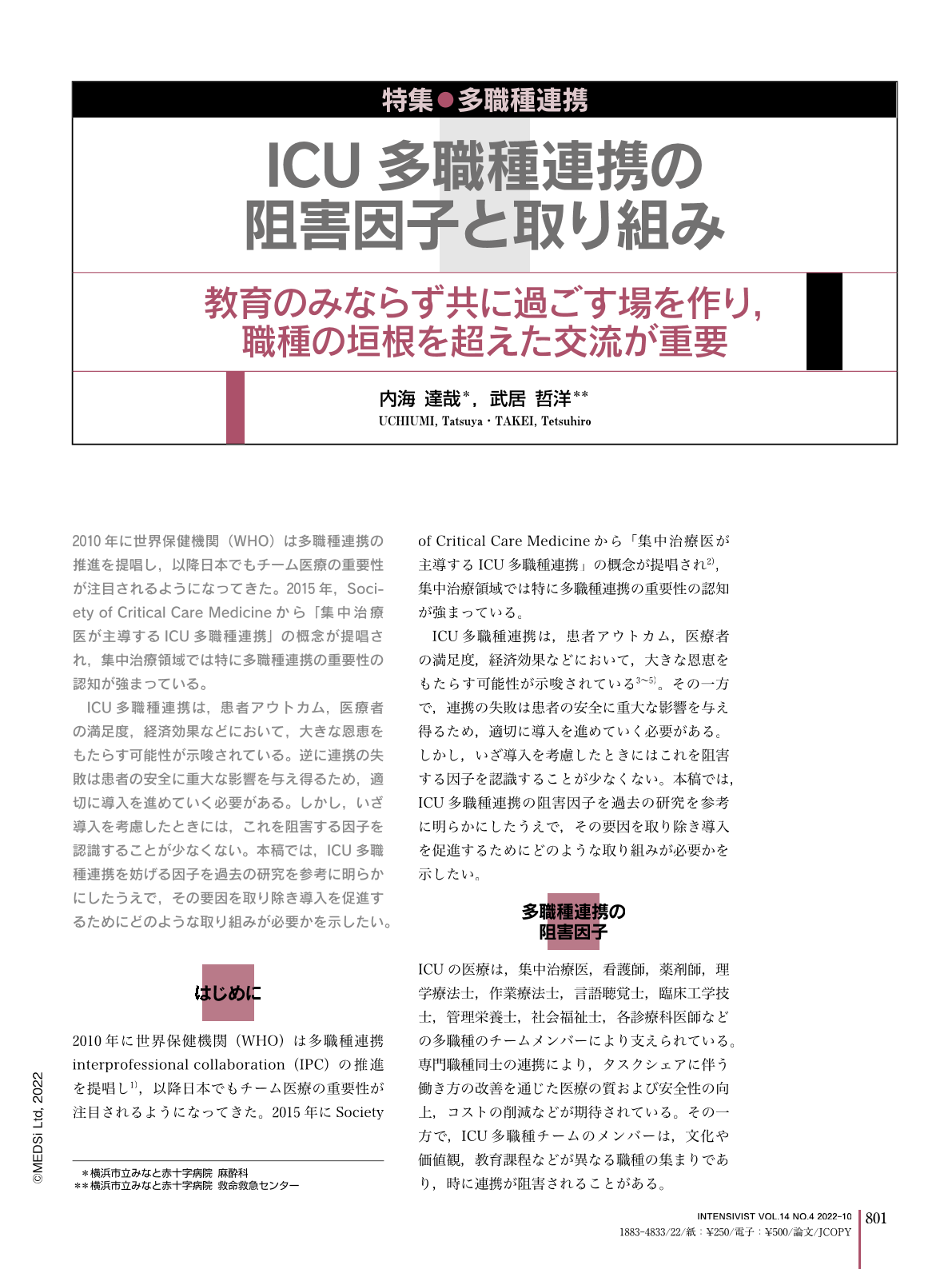Japanese
English
- 有料閲覧
- Abstract 文献概要
- 1ページ目 Look Inside
- 参考文献 Reference
2010年に世界保健機関(WHO)は多職種連携の推進を提唱し,以降日本でもチーム医療の重要性が注目されるようになってきた。2015年,Society of Critical Care Medicineから「集中治療医が主導するICU多職種連携」の概念が提唱され,集中治療領域では特に多職種連携の重要性の認知が強まっている。
ICU多職種連携は,患者アウトカム,医療者の満足度,経済効果などにおいて,大きな恩恵をもたらす可能性が示唆されている。逆に連携の失敗は患者の安全に重大な影響を与え得るため,適切に導入を進めていく必要がある。しかし,いざ導入を考慮したときには,これを阻害する因子を認識することが少なくない。本稿では,ICU多職種連携を妨げる因子を過去の研究を参考に明らかにしたうえで,その要因を取り除き導入を促進するためにどのような取り組みが必要かを示したい。
In 2010, the WHO advocated the promotion of multidisciplinary collaboration, and since then the importance of team-based medical care has attracted attention in Japan as well. In 2015, the American Society of Intensive Care Medicine proposed the concept of “ICU multidisciplinary collaboration led by intensivists”. Recognition of the importance of multidisciplinary collaboration is increasing, especially in intensive care. It has been suggested that ICU multidisciplinary collaboration has the potential to significantly benefit patient outcomes, provider satisfaction, and economic benefits, etc. Conversely, failure to implement such collaboration can have a devastating impact on patient safety, so it must be implemented appropriately. However, when considering the introduction of collaboration, factors that inhibit this process may not be recognized. In this paper, factors that hinder ICU multidisciplinary collaboration will be clarified by referring to past research, and then efforts necessary to remove these factors and promote the introduction of collaboration will be discussed.

Copyright © 2022, MEDICAL SCIENCES INTERNATIONAL, LTD. All rights reserved.


